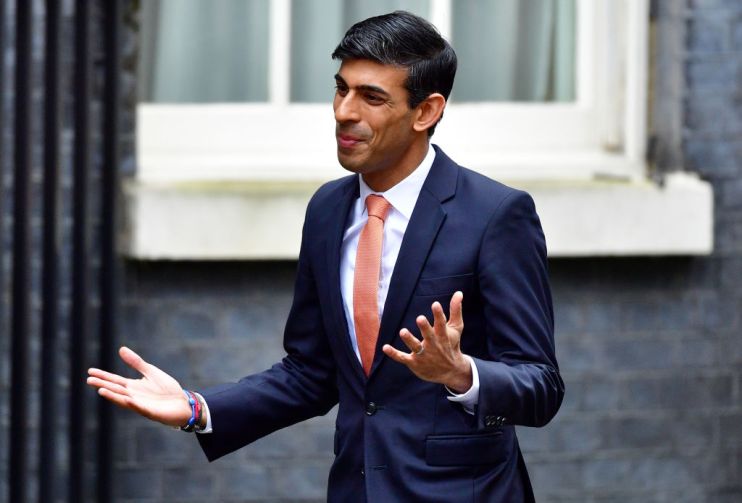Government borrowing hits record £128bn in coronavirus quarter

Government borrowing rocketed to an all-time record £128bn between April and June 2020, official statistics showed today.
That was a massive £103.9bn rise compared to the same period in 2019, and more than double the £55.4bn total borrowed in the previous financial year.
June borrowing hit £35.5bn for the government, the Office for National Statistics (ONS) said.
That was five times higher than the previous year. But it fell below a Reuters poll of economist forecasting a sum of £41.5bn after a downward revision for May.
Public sector net debt skyrocketed as a result to £1.984 trillion – equivalent to 99.6 per cent of GDP. That was revised down slightly compared to estimates in May.
Economists pointed to June’s £35.5bn rise in borrowing – lower than May’s revised down increase of £45.5bn – as evidence that government is starting to wind down.
“However, government borrowing is still rising at an exceptional rate and we suspect that a slowdown in the recovery and further rise in unemployment later this year will prompt the government to announce additional fiscal spending at the next Budget,” Capital Economics’ UK economist Thomas Pugh said.
The smaller rise in government borrowing was prompted by a drop in spending from May’s £87.3bn to £77.9bn in June.
That showed the government spend less on some income support schemes as furloughed staff returned to the workforce.
Tax receipts slipped 16.5 per cent to £49.4bn, while tax revenue dropped 20.1 per cent year on year in June.
A huge 45.1 per cent plunge in VAT fuelled the drop as part of government measures to kickstart the UK economy. Corporation tax and PAYE income tax also fell 19.2 per cent and 1.6 per cent respectively.
The government’s furlough scheme to pay 80 per cent of wages to people who would otherwise be made redundant ramped up borrowing in June.
The £103.9bn annual increase contained a collective £37.6bn outlay on the government’s job retention scheme and self-empoyed scheme.
Howard Archer, chief economic adviser to the EY Item Club, said the budget deficit will soar as a result of government borrowing.
“The substantial deterioration of the public finances over April-June heralds what is clearly going to be a record year for the budget deficit,” he said.
“This is even allowing for the fact that the rate of decline in the public finances should slow as the economy hopefully recovers after contracting around 20% quarter-on-quarter in the second quarter.
“Some of the government’s support measures for the economy will also be wound down over the coming months. But this will be countered by the additional support measures announced by the chancellor in his recent Summer Statement.”
More to follow.